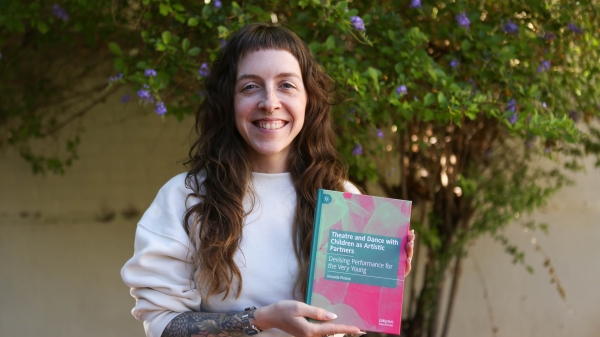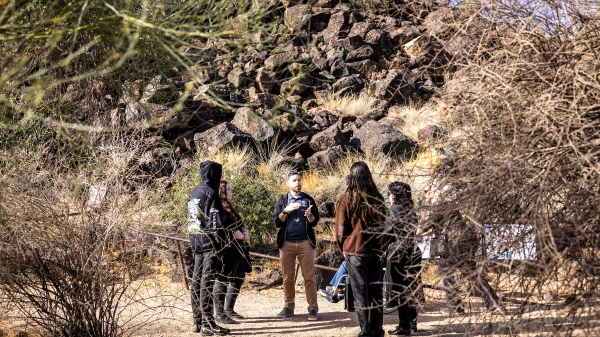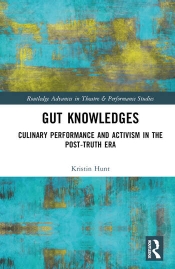Food for thought: Theater professor publishes book on culinary performance, activism

An Arizona State University professor wants to help people think about food in a whole new way.
Kristin Hunt, associate professor of theater in the School of Music, Dance and Theatre in the Herberger Institute for Design and the Arts, has published a book that examines the role of food performance and how engaging all of the senses can lead to a better understanding of truth.
“People think you can’t represent things with food because it’s just pure enjoyment, versus something like art or a novel,” Hunt said. “I think it’s kind of radical that we’ve moved into a period where people are using food as a representational medium to really say things and communicate emotions and make people think.”
“Gut Knowledges: Culinary Performance and Activism in the Post-Truth Era” looks at the ways artists are using food in their performances to fight misinformation. It builds on Hunt’s first book, which delved into the idea that audience members bring their whole selves to the theater and can actively engage all of their senses in the performances.
“This book is about people using the techniques that people have developed to use food as a representational medium to make harder-edged arguments that are about justice or injustice,” Hunt said.
While addressing issues of racism, injustice and progress, the book discusses milk performances, chicken and the future of food — like frog steaks.
“I have some chapters about future foods and performances that are encouraging people to think about how we can transform the food system,” Hunt said. “People are scared of future foods, and so artists have used performance to get audiences close to the foods and get them to encounter them and be intrigued by them instead of afraid of them.”
The book centers joy while addressing justice. It speaks to the need to pay attention to the world around us and find ways to make a difference.
“Food performance is more than just enjoying yourself. It is enjoyment, but it’s enjoyment that can have real impact,” Hunt said.
Hunt hopes the book speaks to younger scholars, food performance artists and anyone interested in creating meaningful art that builds unity in the world.
“This is how we deal with trolls and with tactics of division. We have a tendency to say that we should just ignore bad things, or stay away from people who troll us, but the solution is not to make your world smaller,” Hunt said. “The argument of the book is that we should actually do more of what we love as a way of combating hate and disinformation; we should have fun expressing our point of view and invite more people into the conversation, which is something food can do.”
More Arts, humanities and education

ASU center to host Spike Lee for 2025 'Delivering Democracy' dialogue
The Center for the Study of Race and Democracy (CSRD) at Arizona State University will host Academy Award-winning filmmaker and cultural icon Spike Lee on March 1 for its annual Delivering Democracy…

ASU professor explores theater, dance for young children in new book
Arizona State University Assistant Professor Amanda Pintore believes in the artistic capacity of very young children. She's hoping to spread that awareness to others with the recent publication of…

Petroglyph preserve celebrates 30th anniversary with ancient, modern tales
The Deer Valley Petroglyph Preserve provides a beautiful walk through a pristine desert where chuckwalla lizards are as plentiful as the cacti that comes in many shapes and sizes.It’s also a step…
